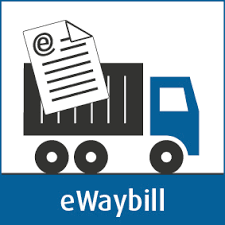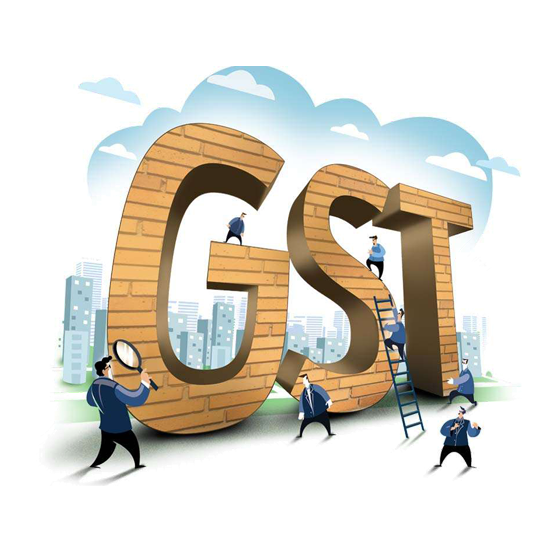- Business Startup
- Startup-Indian Entities
- Startup-Foreign Entities
- Business/Entity Conversion
- Business Registration
- Tax & ROC
- Yearly Tax Compliances
- Income Tax Return Filing
- ITR for Salaried Individuals/ Pensioner
- ITR for Capital Gain
- ITR for Companies
- ITR for House Property Income
- ITR for Income from Business
- ITR for Individuals having Share Trading
- ITR for NRIs and Resident with Foreign Income
- ITR for Partnership Firm/AOP/BOI
- ITR for Presumptive Income
- ITR for Speculation Business
- ITR for Trust, NGO and Companies
- Advisory on Tax Savings
- TDS Return Filings
- LTCG Filing and Advisory
- Income tax Notice Compliance
- Basic
- Standard
- Premium
- ITR for House Property Income and Other Source Income
- ITR for Capital Gain
- ITR for NRIs and Resident with Foreign Income
- ITR for Individuals having Share Trading or Casual Income
- ITR for Speculation Business
- ITR for Income from Business and Profession
- ITR for Presumptive Income
- ITR for Partnership Firm/AOP/BOI
- ITR for Companies
- ITR for Trust, NGO
- Advisory on Tax Savings
Yearly Tax Compliances
ITR for Salaried Individuals/ Pensioner
Income Tax Return Filing
- GST
- GST Registration (₹799)
- GST Accounting
- GST Return Filing
- GST Annual Return
- GST LUT Submission
- GST Taxpayer Registration
- GST Registration for Foreign Entity
- GST Registration Cancellation
- GST-Revocation of Cancellation
- GST Return Filing Packages
- E-way Bill Submission
- Ask an Expert-GST
GST Registration & Cancellation
- IPR
- Trademark
- Trademark Registration (₹5799)*
- Trademark (Individual) Registration
- Trademark with Logo Designers (Individual)
- Trademark with Logo Designers (Company)
- Trademark Objection Management
- Trademark Renewal
- Trademark Renewal (Company)
- MSME Compliance Trademark Registration
- Trademark Restoration
- Trademark Assignment
- Trademark Hearing
- Trademark Opposition
- Trademark Infringement
- Trademark Investigation
- Trademark Logo
- Copyright
- Copyright Registration
- Copyright Objection
- Computer Software Copyright
- Logo Copyright for Goods
- Songs Copyright
- Sound Recording Copyright
- Logo Copyright for Service
- Artistic Work/Painting Copyright
- Cinematography Copyright
- Copyright a Book
- Literature/Dramatic Copyright
- Music Notation Copyright
- Phrase/Slogan Copyright
- Symbol Copyright
- Patent
- Design
Trademark
- Trademark
- Compliance
- LLP Annual Compliance
- Winding up of Inactive LLP
- LLP Winding up by NCLT
Initial Compliance
General LLP Compliance
Changes in company
LLP Annual Compliance/ Closure
- Pay Roll
- Company
- Blog
Goods and Service Tax
GST Annual Return (Premium)
GST Annual Return (Premium)
- Overview
- Points to remember
- Process
GSTR-9 or GST annual return filing for regular taxpayers requiring GST Audit with a turnover more than Rs.2 crores per annum
Keeping track of GST return filings and maintaining books of accounts can be a headache for businesses. Not anymore! This unique quarterly subscription plan, will address all your accounting and return filing requirements helping your business stay compliant and GST ready!
- Turnover more than Rs.2 crores
- GSTR-9 Filing
- GSTR-9C Filing
- Personalized GST Accountant
Eligibility
Every taxpayer registered under the composition levy scheme under GST must file GSTR-9A. However, the following indivduals are not required to file GSTR-9A:
- Input Service Distributor
- Non-Resident Taxable Individuals
- Individuals who pay Tax Deducted at Source (TDS) under Section 51 of the Income Tax Act.
- Casual Taxable Individuals
- E-Commerce operators who pay Tax Collected at Source (TCS) under Section 52 of the Income Tax Act.
Details for Filing GSTR-9A
While filing GSTR-9A, the taxpayer would be required to furnish the following information:
Part-I of GSTR-9A
Basic details such as the GSTIN, Trade Name and Legal Name of the taxpayer would be auto-populated on the GST Portal.
Part-II of GSTR-9A
Information on the outward and inward supplies that are declared in GSTR-4 that was filed during the financial year. This would comprise of the summary from all the quarterly returns filed during the fiscal year.
Part-III of GSTR-9A
Information of the tax paid as declared in the returns filed during the certain financial year. Taxes paid under different heads such as the IGST, SGST, CGST, Cess, Interest, Penalty and Late Fee has to be mentioned here.
Part-IV of GSTR-9A
Some specifics on particular transactions for the previous fiscal year that were declared in the returns of April to September of the current FY or up to the date of filing of annual return, whichever may be earlier. This section would comprise of the summary of the corrections or amendments concerning to the entries of previous FY. It may be omissions or additions.
Part-V of GSTR-9A
Various information such as the following:
- Specifics of Demands and Refunds. Here, the details of any other demands from the tax department regarding tax, tax paid on a demand raised, any balance to be paid should be mentioned. Similarly, all the details of the Refunds claimed, refunds received out of a claim or any pending refund shall be mentioned.
- The details of credit reversed or availed. If a taxpayer switches from a regular to a composition scheme or vice versa, ITC should be reversed or added accordingly. Such details concerning to ITC should be entered here.
- Any Delay fee payable and paid. Any late fee on the account of delayed payments of tax or late filing of returns should be mentioned in this section.
What information should be filed in the GSTR-9 return?
The following information is expected to be filed in GSTR-9A return:
- Total value of purchases on which ITC availed (inter-State)
- Total value of purchases on which ITC availed (intra-State)
- Total value of purchases on which ITC availed (Imports)
- Other Purchases on which no ITC availed
- Sales Returns
- Other Expenditure (Expenditure other than purchases)
- Total value of supplies on which GST paid (inter-State Supplies)
- Total value of supplies on which GST Paid (intra-State Supplies)
- Total value of supplies on which GST Paid (Exports)
- Total value of supplies on which no GST Paid (Exports)
- Value of Other Supplies on which no GST paid
- Purchase Returns
- Other Income (Income other than from supplies)
- Return reconciliation Statement
- Arrears (Audit/Assessment etc.)
- Refunds
- Turnover Details
- Profit as Per the Profit and Loss Statemen
- Gross Profit
- Profit after Tax
- Net Profit
- Details of Statutory Audit
Eligibility
Every taxpayer registered under the composition levy scheme under GST must file GSTR-9A. However, the following individuals are not required to file GSTR-9A:
- Input Service Distributor
- Non-Resident Taxable Individuals
- Individuals who pay Tax Deducted at Source (TDS) under Section 51 of the Income Tax Act.
- Casual Taxable Individuals
- E-Commerce operators who pay Tax Collected at Source (TCS) under Section 52 of the Income Tax Act.
GST Annual Return (Premium)
₹7,899.00
To make tax compliance easier, the income tax department has categorized taxpayers into many groups based on income and its source. So, you need to file your returns accordingly. Registers with GST Annual Return (Premium) plan and enjoy the benefits
Benefits of GST Registration ?
-
The GST will consolidate Central Excise Duty, Service Tax, VAT, Central Sales Tax, Customs Duty, Central Surcharge & Cess, Octroi, Luxury Tax, Entertainment Tax, Purchase Tax and a few other indirect taxes. The GST will apply on all goods and services. Even petrol and petroleum products will eventually be subject to it.This would make tax collection and compliance easy for businesses across the country.
-
The GST council has decided on a four-tier structure. The GST rate will depend on the type of goods and services. Currently, the slab rates are 5%, 12%, 18% and 28%
-
Currently various businesses like restaurants, computer sales and services businesses have to deal with both VAT and Service Tax regulations resulting compliance burden on the business, as they have to calculate taxes for the transaction based on different rates for different items. With the Implementation of GST Business will be made easy
-
Since in some states under the VAT regime, businesses are required to comply with VAT regulations once they cross an annual turnover of Rs.5 lakhs. Under GST regime, GST liability occurs only if an entity crosses an annual turnover of Rs.10 lakhs in northeast or hill states, whereas for rest of India, the threshold is set at Rs.20 lakhs.


























